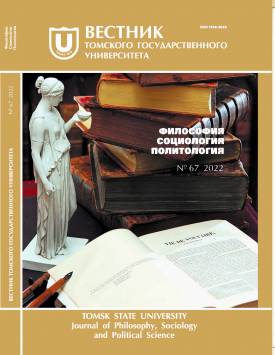Constructing theoretical images of the phenomenon of education: A scenario approach
The article is aimed at the comprehension of the specificity of the scenario approach as a scientific method of building a hypothetical picture of prospective study objects and the demonstration of its applicability to the cognition of education as a social phenomenon. One such image of a possible row is offered for comprehension as the most promising theoretical image of contemporary education designed on the basis of the most pessimistic scenario of its development. We stress that education as an object of study is aggravated with polydisciplinarity and development in the conditions of exclusively high uncertainty and various types of fluctuations. For the solution of the task of designing promising theoretical images of education, we introduce a scenario design - a theoretical and methodological tool that combines constructivist scientific traditions and the scenario method. The scenario design procedure includes the main stages and is based on the author’s universal structural unit-construct, namely a “promising theoretical image of a social phenomenon”. We implement the trendy scenario designing, and the key trend in our case is digital technologies. The analysis of the promising theoretical image of education designed in the article allows describing the picture of a possible future of contemporary education and formulating recommendations of what education can be like if it develops according to the pessimistic scenario we propose. In conclusion, we note that the concept of reinforcement of the theoretical methodological basis of traditional constructivism with the help of the scenario method tools presented in the article allows “looking behind the horizon” of contemporary education, which is a complex and multi-aspect social phenomenon. Therefore, it gives the opportunity to reevaluate the actions undertaken in contemporary education in order to mitigate the consequences for its possible future. The authors declare no conflicts of interests.
Keywords
scenario method, construction, education, theoretical imagesAuthors
| Name | Organization | |
| Vikhman Victoria V. | Novosibirsk State Technical University | vvv@smc.nstu.ru |
| Romm Mark V. | Novosibirsk State Technical University | mark.romm@gmail.com |
References

Constructing theoretical images of the phenomenon of education: A scenario approach | Tomsk State University Journal of Philosophy, Sociology and Political Science. 2022. № 67. DOI: 10.17223/1998863X/67/6
